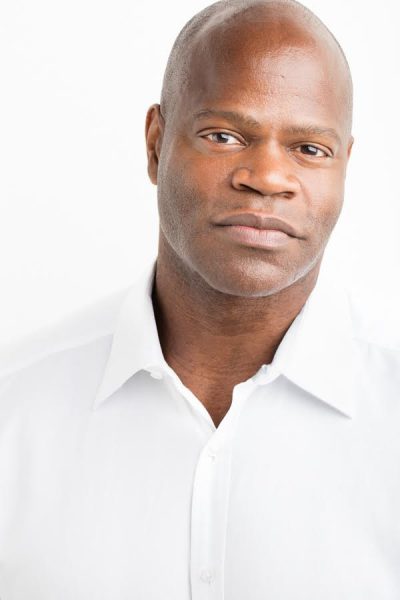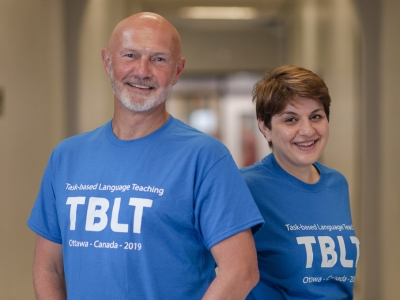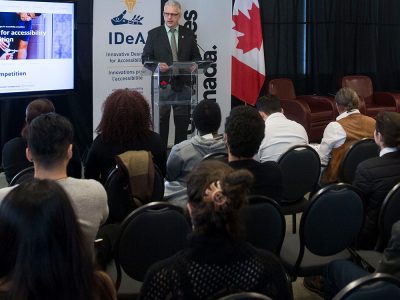By Elizabeth Murphy
In March, Carleton University welcomed Michael F. Charles when he began his appointment as University Advisor on Equity and Director of Equity Services.
Since then, Charles has quickly immersed himself in a number of university initiatives and files. He has also been meeting with departmental partners, campus stakeholders and community members to introduce himself and discuss Equity Services at Carleton.
Recently, Charles took time to share insights into his experience, why he chose Carleton and the important work of Equity Services.
Let’s start by having you share a bit about yourself and your background.
Thank you for the opportunity to connect in this way with the Carleton community.
I began my professional life as a lawyer in Toronto, where I received fantastic training that continues to serve me well to this day. But throughout those years, I knew I would end up working in other sectors, although I couldn’t predict them at the time.
It was through work on the board of the Nelson Mandela Children’s Fund (Canada) and school boards that I discovered some of the exciting developments in the Equity, Diversity and Inclusion (EDI) space. I leapt at the chance to acquire new skills and knowledge and committed to shifting the trajectory of my career. I became certified as an administrator of leading psychometric intercultural development tools and launched a consultancy offering organizational development and leadership services.

Michael Charles
With equal focus on research, strategy and programming, I delivered project contracts with large organizations in the private, public and non-profit sectors of Canada and the United States.
All of this deepened a value-driven, interdisciplinary and evidence-based approach to client service. It also awakened an affinity for and an urge to work at scale, ultimately leading to my most recent role as the inaugural Executive Director of the Centre for Human Rights, Equity and Inclusion at York University.
In this capacity, I held portfolio responsibilities for all students, non-academic staff and faculty.
I benefitted from a number of professional development opportunities during my York chapter. To effectively manage change and generate impact within – as distinguished from merely consulting for – large institutions meant flexing and strengthening my collaborative abilities. I’m grateful to have formed a number of important relationships with key leaders from all parts of that employment experience.
In retrospect, my path to the higher education sector seems logical and natural.
Universities like Carleton have national and international reach where their members wrestle daily with the research, teaching, learning and work implications of accelerating demographic shifts, technological and social innovation, climate change, complex economic dynamics involving globalization and rising inequality, disruptive cultural and political developments – among so many other factors shaping our world and the way we live.
Attention to EDI in everything we do in this community is essential to our understanding of these challenges and opportunities, as well as our ability to collectively thrive through and among them. I have found this theme running throughout my work from my earliest days as a consultant and see these trends as continuing influences.
What made you want to take the positions at Carleton?
Accepting the invitation to become part of this community was a privilege and an opportunity.
I have arrived at a time of leadership renewal across the institution and I certainly sense an optimism and aspiration among the folks I am meeting. I see an openness to new ideas about how to drive the university’s academic mission and the important place EDI and Indigeneity should occupy in that conversation.
I perceive a significant part of this push is the desire to more fully energize the department’s portfolio beyond its current success and performance. I believe much of my experience speaks to that desire.
At York, I was part of a team that successfully transformed the impact of EDI work – moving beyond an operational and ad hoc focus on human rights and behavioral compliance towards a more strategic and institutional emphasis on building inclusive and creative cultures. It is this background which may be most relevant and, hopefully, applicable to Carleton.
The city of Ottawa is also a great place to work, with lots of opportunity for connection. Indigenous communities are vibrant and engaged. As the home for various funding agencies, Ottawa is the pre-eminent research hub in the country. Government and policy makers sit close by, businesses – particularly those in the tech sector – are growing, and the embassies of the nation’s capital provide gateways to the world.
Against this backdrop, there is an opportunity at Carleton to collaborate with all members of the community to develop a university-wide strategy for EDI. Fully conceived and implemented, this work will further drive academic excellence and engage our internal and external communities.
But none of this can be done without a great team; and in this respect, I’m very lucky to be working with terrific leaders within the department. Laura Gong, Ikram Jama, Benny Michaud and Bailey Reid are very experienced and committed professionals. Their insights and knowledge across an array of subject areas will help inform a future direction.
After considering these factors, the decision to work at Carleton was easy.
As the University Advisor on Equity, what are some of your priority areas for the department?
The department is emerging from a period of transition over the last few years. I must work with my colleagues to consolidate and deepen our organizational capacity to support the community.
In early conversations with stakeholders, I’ve learned it may also be appropriate to refine the mandate and scope of the department, as well as review how we communicate our work to the community. We should give more visibility and clarity to our office functions and telegraph a future direction in which all members of the university can take greater ownership.
This clarity and directional change may well need to be better reflected in the name of our unit. The concept of Equity in “Equity Services,” as we are currently known, is synonymous with neither Indigeneity, human rights, sexual violence nor inclusion. Each of these words has a different historical origin and usage, and each conveys a different programmatic implication.
There are also pressing projects demanding attention.
In recent years, institutional and societal stakeholders are asking more pointed questions of universities about their work to diversify representation in employment at all levels, but particularly in administrative leadership and among those seeking access to research funding. An increasingly diverse and globalized student population similarly inspires a reimagining of what student success and future oriented curriculum looks like now and in the decades to come. Strengthening our demographic data collection will be an important step to addressing these issues.
The Indigenous Strategic Initiatives Committee (CUISIC) consultations continue apace and our office is a full participant in these efforts.
After extensive consultation on Carleton’s Sexual Violence Policy, the Sexual Violence Prevention and Education Committee (SVPEC) is engaging with stakeholders to develop a comprehensive Campus Sexual Violence Prevention Strategy. The committee aims to have the strategy in place this year.
We’re also working with campus partners on new and important issues of human rights as they relate to student experience and success.
An interesting discussion has been initiated with the Office of Quality Initiatives to explore a potential collaboration around employee leadership development programming.
We are also working with the university’s governors, general counsel and the president’s office to develop and approve a first-ever Carleton University Board EDI Statement as it relates to diverse recruitment and governance.
These are just some of the initiatives and reflections we’ve committed to for the near term.
Longer-term objectives include more strategic concerns, but I will be careful to approach these in a systematic and consultative fashion guided by the most compelling research, as well as experiences from colleagues across the sector and beyond.
Above all, my first obligation is to listen.
In order to understand EDI and Indigenous challenges and opportunities at Carleton, I must listen to the expectations and experience of students, academic and non-academic staff, alumni and board members while resisting the natural inclination to come to any settled view before hearing from the broadest cross-section of people.
The work of the office should respect research on EDI, conciliation and reconciliation best practices; but it must also reflect the specific goals, needs and concerns of the university.
What are you most looking forward to about your new role at Carleton?
Since I began my term, I’ve already met so many folks who have offered generous support and encouragement.
I’m excited to work with and learn from all members of the Carleton community – our students, non-academic staff, faculty, our board and our external stakeholders – to foster still greater success in which we can all share.
Monday, May 27, 2019 in Equity Services
Share: Twitter, Facebook



